Why Europe’s energy prices are spiraling out of control
As the price of electricity skyrockets, people in the UK and EU are trying to find ways to cope.
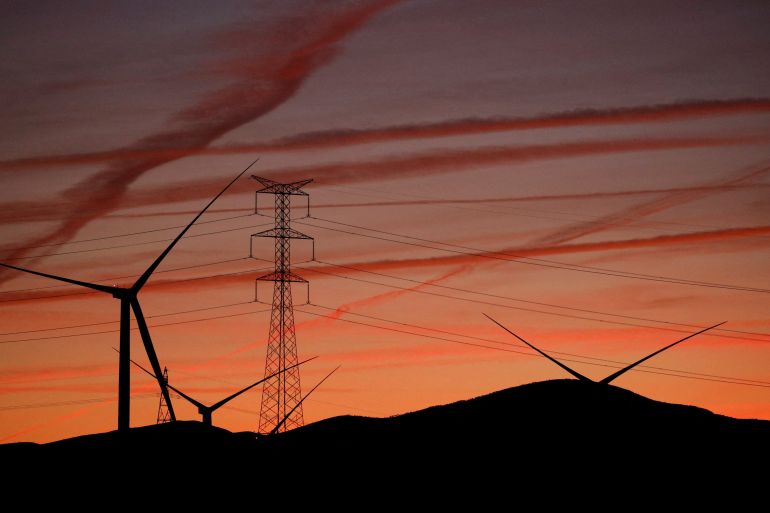
Europe is just weeks out of a record-setting heatwave, but panic is already setting in about how the continent will cope come winter. Russian gas imports into the EU have slowed to a trickle in response to sanctions over the war in Ukraine. That has exposed other faultlines in energy markets, causing electricity prices to soar. So what will Europeans do to manage through the winter?
Keep reading
list of 4 itemsThe Taliban’s Afghanistan
Queen Elizabeth II and the Commonwealth
How close is Iraq to conflict?
In this episode:
- Henning Gloystein (@hgloystein), Director of energy, climate, and resources at Eurasia Group (@EurasiaGroup)
- Simon Francis, Coordinator, End Fuel Poverty Coalition (@EndFuelPoverty)
- Maria Timon Samra, Chief executive, Tŷ Hafan (@tyhafan)
Connect with us:
@AJEPodcasts on Twitter, Instagram, and Facebook
Full episode transcript:
This transcript was created using AI. It’s been reviewed by humans, but it might contain errors. Please let us know if you have any corrections or questions, our email is TheTake@aljazeera.net.
[THEME MUSIC PLAYING]
Halla Mohieddeen: Europe is just weeks out of a record-setting heatwave. But already, there’s panic about how the continent will cope with the cold.
Newsreel: Many Europeans are facing a difficult winter as energy prices soar.
Halla Mohieddeen: Whether it’s in the UK, where wide swathes of people wonder if they can pay their bills
Newsreel: An enormous number of families up and down the country in food and fuel poverty.
Halla Mohieddeen: …or the rest of Europe, as governments reconsider how energy is bought and sold.
Newsreel: EU energy ministers calling for urgent measures to tame the price of gas.
Halla Mohieddeen: It’s clear the status quo can’t stand.
Halla Mohieddeen: So why are energy prices spiralling now? And what will people across Europe do to cope? I’m Halla Mohieddeen and this is The Take.
Halla Mohieddeen: Earlier this month, viewers of British daytime TV saw a segment that made some people feel like they were living in an episode of Black Mirror.
Newsreel: Okay, here we go. So we’ve got, we’ve got, we’ll pay your energy bills…
Halla Mohieddeen: It’s from a programme called This Morning. And a lucky caller gets a spin on a wheel lined with prizes.
Newsreel: How are your energy bills? Are you a bit worried about it all?
Newsreel: Um, major.
Newsreel: Yeah, are you?
Newsreel: I’ve got, I’ve got one of these prepayment meters and it’s absolutely murder.
Halla Mohieddeen: One of those prizes: paying off the caller’s energy bill for four months. And that’s what Alex from North London won.
Newsreel: It’s your energy bill!
Newsreel: Oh my God. Thank you.
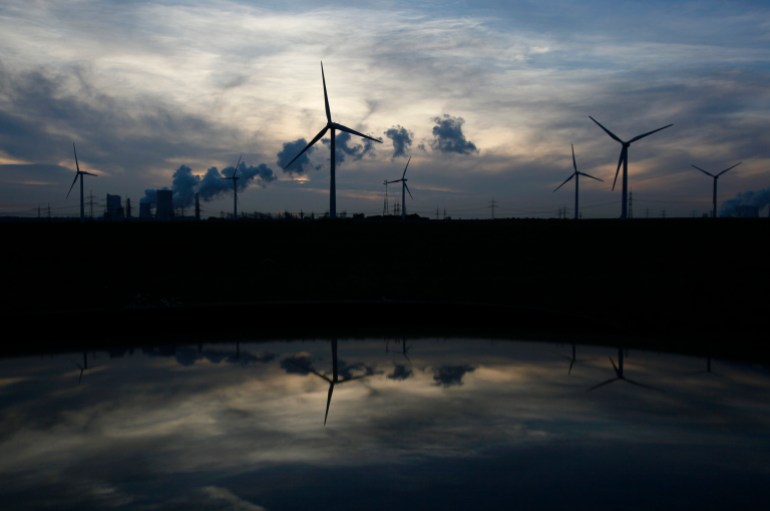
[MUSIC PLAYING]
Henning Gloystein: It’s a sign of the times that in, in game shows that you give away a prize for household energy bills. It tells you that the household energy bills are probably too high.
Halla Mohieddeen: That’s Henning Gloystein. He’s the director of energy, climate, and resources at the Eurasia Group.
Henning Gloystein: I mean, normally, you can win a car or a holiday. In some dire circumstances of the past, you’ve also seen shows give away jobs, which gave you the idea that there was probably not enough jobs out there. And now that energy is in short supply in major economies like the UK. And that is not a good sign for the economy of Britain, or, for that matter, for the rest of Europe.
Halla Mohieddeen: Let’s just start off with the UK. Can you just give our listeners a sense of how, just how much energy bills are rising in Great Britain right now?
Henning Gloystein: So they’ve already increased by anywhere between 30 and 60 percent for all household customers this year, And there was an announcement that they would pretty much increase by 80 percent again on October 1.
Halla Mohieddeen: That announcement came in late August. Energy prices had been rising for a while. And the government had been stuck in political crisis.
Newsreel: Boris Johnson’s out. The British prime minister held on for as long as he could, but a series of scandals followed by mutiny and then a domino of resignations had left him with no other choice than to step down from what he calls the best job in the world.
Halla Mohieddeen: By September 6, the UK had a new prime minister, Liz Truss. And at that point, the energy prices had become an emergency. Two days after she formally took leadership, she gave a speech roughly outlining some of her energy policies.
Liz Truss: This government is moving immediately to introduce a new energy price guarantee that will give people certainty on energy bills.
Halla Mohieddeen: Truss announced a price freeze: the typical household, she said, will pay no more than 2,500 pounds ($2,856.06) per year on their energy bills for the next two years.
Henning Gloystein: In very simple terms, if there was an 80 percent price increase for household or small business energy tariffs from October 1, millions of small businesses and households would be unable to pay those bills pretty much immediately. So the government had to act pretty much on day one of Ms. Truss’s premiership.
[MUSIC PLAYING]
Halla Mohieddeen: But by that point, panic had set in.
Simon Francis: What has been particularly hard to see this summer is that the government has not done anything until the last minute to actually help people faced with bills that they knew that they would have absolutely no way of being able to pay.
Halla Mohieddeen: That’s Simon Francis. He’s the co-coordinator for the End Fuel Poverty Coalition.
Simon Francis: Broadly speaking, fuel poverty is not having enough money to keep your home a safe temperature. So living in a cold damp home means that if you are disabled or you’re elderly, or you’ve got pre-existing health conditions, especially heart or lung conditions, it will all be made much, much worse.
Halla Mohieddeen: And over the past few months, Simon’s been hearing from people already worried about their options, or lack of them.
[MUSIC PLAYING]
Simon Francis: We know of people who are disabled who this summer weren’t charging their wheelchairs because they just simply were worried about whether or not they’d be able to afford the bills. So they weren’t going out. That has a huge, huge impact on people’s mental health. We, you know, stories of grandparents, of families who have already started to try and think about what’s the conversations that they’re going to have to have with their kids about “we’re all gonna be sleeping in one room,” or, you know, “we are not gonna be doing Christmas this year”. Those conversations have been happening already this year. And whilst the government has now stepped in with some support, it’s nowhere near enough to save everyone from fuel poverty.
Halla Mohieddeen: In the past, fuel poverty has usually affected specific populations, low-income families, the elderly, people with health conditions, for example. But over the last couple of years, it’s become a more mainstream issue.
Simon Francis: So to give the sense of the scale, just last winter, there were around 10 million people in four and a half million households in fuel poverty across the UK.
Halla Mohieddeen: Simon’s organisation predicts the numbers this year will be even more dire.
Simon Francis: What we are predicting, and this is even in spite of the support that was announced by the government just last week, is that we’re going to be seeing around seven million households, about 16 and a half million people, going to be in fuel poverty. So, you know, it will affect every town, every village, every city in the UK this winter.
Halla Mohieddeen: And that’s nearly a quarter of the UK’s population of 68 million.
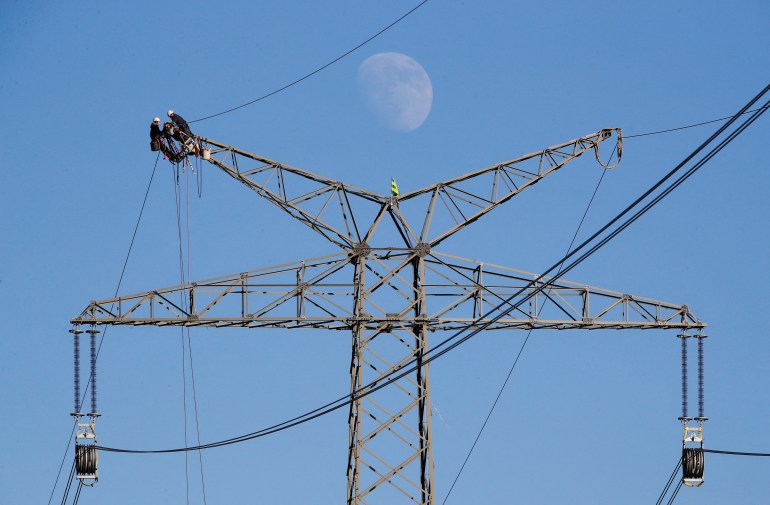
[MUSIC PLAYING]
Halla Mohieddeen: Simon’s talking about households, who, again, will see a price freeze for two years. And households already had a price cap in place, even before Prime Minister Truss’s announcement. But charities and businesses didn’t. Here’s what she had to say about their bills.
Liz Truss: We will also support all businesses, charities, and public sector organisations with their energy costs this winter, offering an equivalent guarantee for six months.
Halla Mohieddeen: Charities like Ty Hafan, a children’s hospice in South Wales, are hoping for some relief. Here’s their chief executive, Maria Timon Samra.
Maria Timon Samra: So initially, we had a contract, and our contract was just over 100,000 pounds per year ($114,251). And that was for our head office and hospice, which are co-located and our 19 retail shops. The recent quote we’ve had because our contracts expire at the end of this month, is for 600,000 pounds ($685,506).
[MUSIC PLAYING]
Maria Timon Samra: We were expecting even possibly an increase to the extent of doubling, but never anything of this extent. I mean, to find half a million pounds as a charity that’s funded, to the greatest extent, over 80 percent by the generosity of the public, this was just a cataclysmic shock for us.
Halla Mohieddeen: And there’s a double burden to bear there – their funding is down as donors cut back on charitable giving due to rising prices.
Maria Timon Samra: We really thought we were coming out of the pandemic. And instead, we’ve now landed into a crisis that is far worse for us financially.
Halla Mohieddeen: And on top of that, the families they work with already face budget constraints. Samra’s hospice and another in Wales surveyed the families they work with; more than half, she told us, have an annual income under 25,000 pounds ($28,562.50). That’s less than $29,000 a year.
Maria Timon Samra: These families already face unfairly difficult lives, because obviously, they’re contemplating the loss of their child. The mental health impact on what they do already is difficult. The energy bills that these families face are just aggravated by the need for life-saving equipment around the clock, such as oxygen concentrators, ventilators. They need around-the-clock heating – typically all of these are very energy dependent and any increase in these costs makes it very, very difficult for the families.
Halla Mohieddeen: The new price freeze won’t necessarily help families like many of the ones Maria works with, who are already feeling the pinch. And Maria says charities like hers need tangible help, too.
Maria Timon Samra: Something needs to be done to recognise the fact that we provide statutory services that otherwise the government would be obliged to provide. So we fill a gap and we do that largely as a result of the generosity of the public. The public are now not in a position to support us. So surely it makes sense for the government to step in and create provision for charities. We’re not a business. we cannot put our price tag up. All we can do is cut. And we’re really reluctant to do that. We’ve been there for almost 25 years for children and families across Wales that need us, and we’re determined to be there for the next 25 and beyond. So this is a time when they need us more than ever, and we want to be there for them.
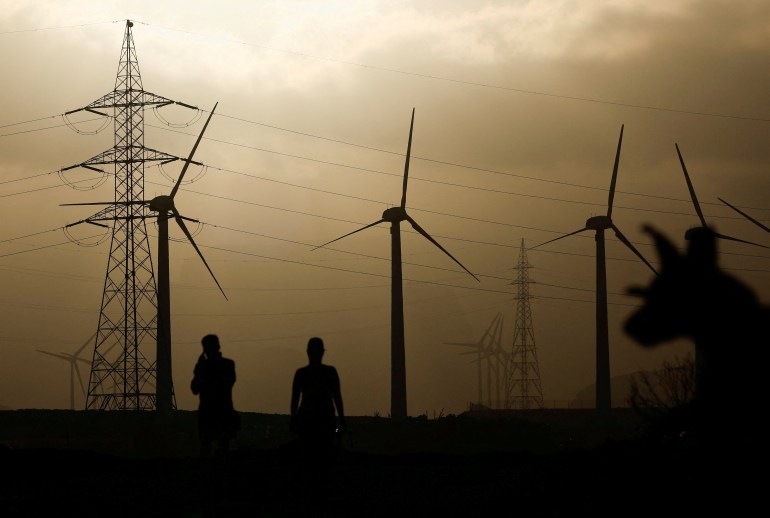
[MUSIC PLAYING]
Halla Mohieddeen: After the break, a look at why Maria and others are in this dilemma in the first place.
Halla Mohieddeen: While a lot of the attention on Europe’s energy crisis has been focused on the UK, the problem is continental. Here’s Henning again.
Henning Gloystein: So the price increases in the UK have been more drastic than in most other European countries. So in France, things are a little bit more under control in the sense that the government also owns the biggest energy supplier so they can control price increases a little bit more. But if you take other comparable economies, like the German economy or Italy, prices have literally doubled or tripled. So the prices will rise severalfold for virtually every European this winter.
Halla Mohieddeen: Talk us through why this is happening. So what’s behind the high prices this year, because a lot of people are putting this down to the war in Ukraine.
Henning Gloystein: So what’s happened is, in response to Russia’s invasion of Ukraine, the West, including the European Union, has imposed ever-tightening sanctions on Russia.
Newsreel: A block of sanctions that are the toughest yet on Moscow imposed by the European Union.
Newsreel: European commission president has called on the EU to ban oil imports from Russia.
Newsreel: Heavy new sanctions on imports on exports and also ruling out any Russian company receiving any type of EU aid.
Henning Gloystein: In retaliation to that, Moscow has responded by gradually squeezing the energy supplies to Europe, and particularly natural gas. And that means that the biggest gas supplier prior to the war is barely sending any natural gas to the EU anymore. And because energy prices, especially power prices, are de facto currently priced off the natural gas market, that means that every energy price has skyrocketed.
Halla Mohieddeen: So you’ve mentioned because there’s less gas going around, or there’s less gas available to buy going around, that’s pushing the prices up. But what about renewables? And I ask specifically, because certainly for households in the UK, where I am, a lot of suppliers say we’re 100 percent renewable energy, wind, solar and all the rest of it. Now, last time I checked, Russia didn’t control the solar energy or the wind energy around the UK. Why is the price of other forms of energy going up as well, just because gas is more expensive?
Henning Gloystein: That’s a really good point. So in fact, the actual price for electricity sourced from wind, solar, isn’t going up, but the price for electricity, the wholesale price for electricity has gone up because what we have in Europe is a so-called marginal price model.
Halla Mohieddeen: That’s the way many governments based on open market principles set their electricity prices. And it goes like this:
[MUSIC PLAYING]
Halla Mohieddeen: The wholesale electricity market buys up the cheapest energy first – that means renewables like wind and solar power. And when that runs out, they’ll buy from increasingly more expensive sources until all the demand is met. And it’s the last price, the most expensive one, that determines the price all those other energy producers get too – and what consumers pay.
Henning Gloystein: At the moment there’s still a lack of availability of mass-scale storage for renewables. It means that, when it’s not windy and or it’s not sunny, we can’t really store it from the times when it was very windy or sunny. And that is what we’ll need to invest in in the next few years to reduce the risk of further disruptions.
Halla Mohieddeen: Until then, Europe needs gas to meet its energy needs.
Henning Gloystein: Now in the past when gas wasn’t that expensive, it wasn’t really a problem. But now that marginal price has gone so high because of the cut-off of Russian gas to Europe. everything else is priced at this artificially high price for gas. Now, the problem though is if you just ignore that price for gas, and just say, nope, we don’t want that. We’re gonna cap electricity prices at a much lower level to reflect the cheap renewables or coal or nuclear electricity. You can do that, but then you will not attract natural gas imports to meet winter demand. Very complicated.
Halla Mohieddeen: There is a profit being made here, isn’t there? Who’s benefiting from this crisis?
Henning Gloystein: Absolutely. Every crisis, whether everyone likes it or not, has people, companies, governments that profit from this. So of course, if you have spare gas to sell to Europe and you’re not Russian, you will be making fine profits at the moment. The US LNG industry is making a lot of money. Qatar is making a lot of money. Norway, just next door in Europe, is making a lot of money here as well. The big private or western-listed oil and gas companies make a lot of money. However, also, if you are a renewable energy producer, you are making a lot of money in Europe at the moment because your wind turbine was probably financed with subsidies paid by the government, and you are currently enjoying this crazy high price set by the gas industry, but your cost of production is really low. So you are making a lot of money.
![Sheep graze beneath a row of electricity pylons near Ellesmere Port, Britain, October 11, 2021. [Phil Noble/Reuters]](/wp-content/uploads/2022/09/2022-09-08T073341Z_1933958337_RC2UCW90MF68_RTRMADP_3_BRITAIN-ENERGY.jpg?w=770&resize=770%2C477)
[MUSIC PLAYING]
Halla Mohieddeen: This is why some are calling for a tax on the profits of energy producers. That includes UN Secretary-General Antonio Guterres, who called out fossil fuel companies especially.
Antonio Guterres: The combined profits of the largest energy companies in the first quarter of this year are close to $100bn. I urge all governments to tax these excessive profits and use the funds to support the most vulnerable people through these difficult times.
Henning Gloystein: Governments are starting to call for these windfall taxes. Tax the oil and gas producers, especially the western ones, as a solidarity payment. Tax the renewable industry to help resolve the problem.
Halla Mohieddeen: The EU is doing just that. On Wednesday, European Commission President Ursula von der Leyen outlined the bloc’s energy proposal. And it includes taxes on energy companies that have had abnormally high profits, as well as fossil fuel companies. She also announced broader reforms of energy markets in general.
Ursula von der Leyen: So we have to decouple the dominant inference of gas on the price of electricity. And this is why we will do a deep and comprehensive reform of the electricity market.
Halla Mohieddeen: These are big moves that are being made to try and, to try and fix the supply problem, and try and stabilise the energy situation. Renewables seem to be getting it in the neck somewhat, because they’re benefiting from having their price sort of tied to the most expensive form of energy. Does this crisis in some way pose a kind of threat to all these green policies to try and tackle climate change, because what’s to stop countries just firing up coal power stations?
Henning Gloystein: So in the short term, if you look at Germany, its coal-fired power generation has gone through the roof. They’ve put on many, many coal-fired units that were due for shutdown and you can see German emissions, carbon, greenhouse gas emissions, are increasing again. Similar efforts are being made in the Netherlands, and Italy and France. So this is bad. That said, long term, across most of Europe, we do not think that the climate efforts will be undermined by this. In fact, we think they will be accelerated because the one thing that this crisis is pretty much highlighting is that it would’ve been good to act on, or to expand, renewables plus storage solutions faster over the last 10 years, not slower.
[MUSIC PLAYING]
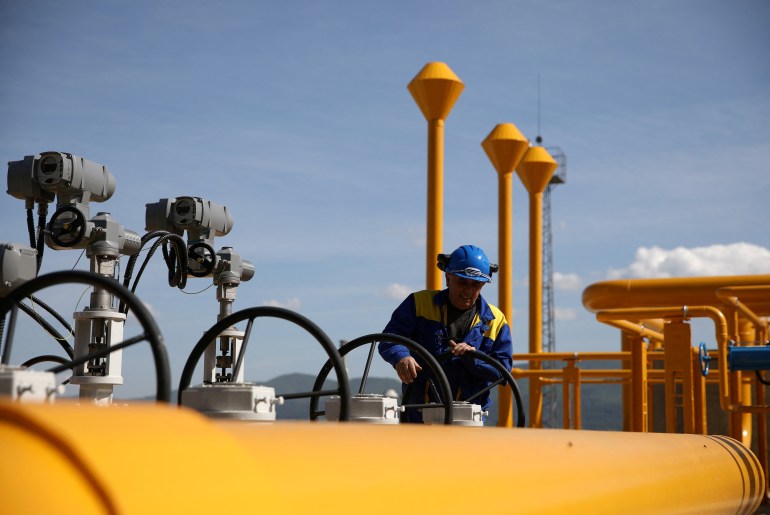
Henning Gloystein: UK, particular case with the new government. Since last week, they have a climate change denier as the secretary of state for energy, industry and business.
Halla Mohieddeen: Henning’s talking about Jacob Rees-Mogg, a long-time conservative politician who, earlier this year, said things like this:
Jacob Rees-Mogg: We need to be, um, thinking about extracting every last cubic inch of gas from the North Sea.
Halla Mohieddeen: And this…
Jacob Rees-Mogg: 2050 is long time off. We’re not trying to become net zero tomorrow.
Halla Mohieddeen: Now, the new government has also lifted a ban on fracking, citing the high energy costs.
Henning Gloystein: Hence you see the ideas of fracking in densely populated areas of Northwest England. I mean, I don’t think it’s gonna last, for that matter. The UK does have strong potential in decarbonisation efforts, but it also does have a very capable oil and gas industry. So for sure a bit like the Germans are firing up coal, in the UK, you can fire up gas and oil power production for a little bit, but I’m not sure fracking in Lancashire is a good idea.
[MUSIC PLAYING]
Halla Mohieddeen: Are there any solutions being mentioned across Europe that address the root causes of this crisis, or do you think we’re gonna have you back again in 2023 to talk about energy prices spiralling even further?
Henning Gloystein: Sadly as usual in crises like this, it is the people with the lowest incomes, the people who already have most problems economically, who will be hit hardest. This will sadly be a reality in the next winter and maybe the one after that as well.
[MUSIC PLAYING]
Henning Gloystein: Longer term, however, I do see some silver linings. The reduced consumption of fossil fuels, the increased use of our own domestic clean resources of energy, and investment into improved efficiency should significantly reduce fossil fuel consumption by Europe’s households and industry, I think from the mid-decade, so 2024, 2025 onward. But as I said, these are solutions for a year or three down the road, sadly, not for this winter. I hope next year if I’m invited back again, we can start talking about some of the more positive prospects. But it’ll be a tricky year.
Halla Mohieddeen: And that’s The Take. This episode was produced by Negin Owliaei with Chloe K. Li, Amy Walters, Alexandra Locke, Ruby Zaman, and Ashish Malhotra, and me, Halla Mohieddeen. Alex Roldan is our sound designer. Aya Elmileik and Adam Abou-Gad are our engagement producers. And Ney Alvarez is our head of audio. We’ll be back.
Episode credits:
This episode was produced by Negin Owliaei with Chloe K. Li, Amy Walters, Alexandra Locke, Ruby Zaman, Ashish Malhotra, and Halla Mohieddeen. Our sound designer is Alex Roldan. Our engagement producers are Aya Elmileik and Adam Abou-Gad. Ney Alvarez is Al Jazeera’s head of audio.